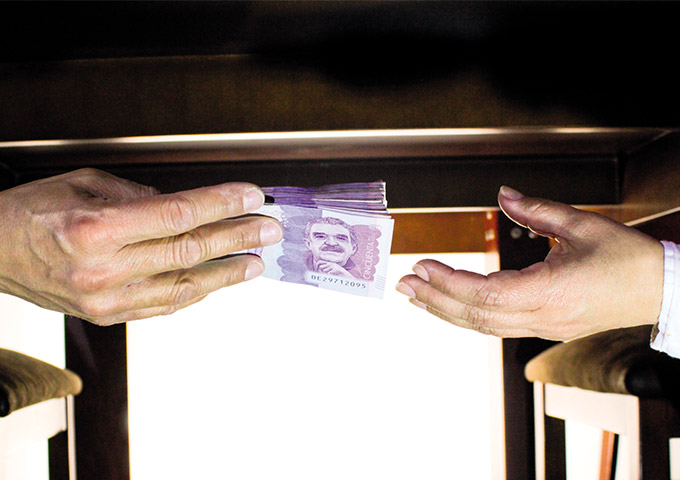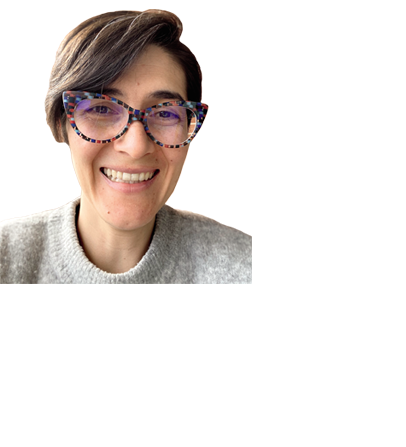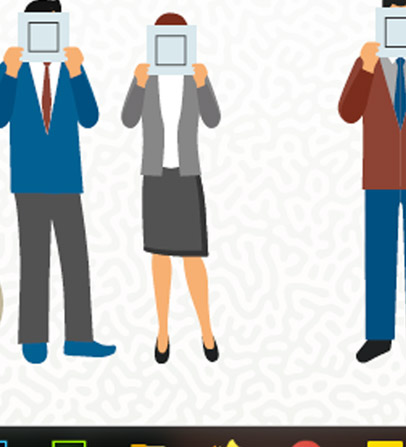Corruption: the voters dilemma
By: Magda Páez Torres
Photos:
Economics and Politics

By: Magda Páez Torres
Photos:
From the world's most advanced economies to countries with lower development rates, corruption has been the main character of major political scandals. The tentacles of this huge octopus have smothered the planet from end to end, with different nuances in each country.
According to the recent International Transparency Corruption Perception Index (CPI) 2019, “More than two-thirds of the countries show signs of stagnation or setbacks in their anti-corruption efforts.” As it is, the fight against this crime continues to be a long-term topic.
Nevertheless, how does corruption influence the decision of voters? Does it influence them or not when casting the vote? Precisely, Professor Sandra Botero, Faculty of International, Political, and Urban Studies, Universidad del Rosario, undertook the task of studying the behavior of voters in Latin America, considering two countries: Colombia and Argentina. Together with Laura Gamboa, a researcher of the University of Utah (United States); Rodrigo Castro, of CIDE (Mexico); Nara Pavao, of the Federal University of Pernambuco (Brazil), and David Nickerson, of Temple University (USA), analyzed different perspectives on this problem.
One of the objectives was to understand a paradox: What motivations lead voters to lean toward corrupt politicians and how the environment affects citizens’ electoral decisions.
One of the first studies was carried out in Colombia in order to analyze the role of sources of information in voter decision, particularly regarding their credibility and impact on the recipient when reporting corruption by a certain political leader, and whether they could be decisive in the definition of the vote.
This research study was conducted exploring the effects that three different sources have on the average citizen: A newspaper, an NGO, and a court. Throughsurveys, the citizen was asked whether they would vote for a certain candidate, accused of corrupt practices, varying the source of information in each case. The survey was conducted with 801 people, in four main cities in the country: Bogotá, with 313 respondents; Medellín, with 196; Cali, with 194; and Barranquilla, with 98 people consulted.
“Some studies indicated that people voted for corrupt politicians because they did not know they were corrupt, but other research works indicated that they did, even if one gave them information that they were corrupt. So the work we did for Colombia was an attempt at solving that concern. We started from the hypothesis that perhaps people do not trust the information source, and therefore, we decided to find out whether the information originator affects the vote for corrupt politicians,” Professor Laura Gamboa expressed.
Among those surveyed, people who received the profile of the candidate accused by means of a newspaper were among the 10–14 percent who were less likely to choose or trust that candidate than those who received the information via NGOs or courts. This result makes sense, if we consider that 20 percent of those surveyed expressed that they trusted the newspapers when compared with 11 and 9 percent of the respondents, who believed in the judicial power and NGOs, respectively.
“We found that the only information that decreases the vote for the corrupt candidate is that of the newspapers. That is to say, there is greater credibility in this source because when it was the newspaper that transmitted the information, people who answered the survey were less willing to votefor the said candidate,” explained researcher Sandra Botero.
Clientelism or illegal enrichment?
Argentina’s case
Colombia ended up being a trigger for another investigation, which was conducted later on in Argentina. "We perceived, after Colombia’s work, that there was a kind of gap and that people were talking a lot about how corruption matters, but we were not sure if the type of corruption mattered. That is because of clientelism or because the candidate was doing it to enrich himself. That was a question we got to because of this work,” stated Botero.

Professor Sandra Botero, Faculty of International, Political and Urban Studies, Universidad del Rosario, undertook the task of studying the behavior of voters in Latin America, considering two countries: Colombia and Argentina.
Thus, the next step was to advance a methodologically similar exercise in Argentina, but this time, the question was aimed at knowing which corrupt practice was considered more seriousby voters: Illicit enrichment or clientelism.
It is worth noting that illicit enrichment or unjustified private enrichment refers to the misappropriation of public resources for their own benefit, while clientelism is related to the offer of goods and services, with the condition to vote for the candidate who is providing them.
Again, telephone surveys were applied, 2,552 in total, divided into eight groups. This time, there were two candidates among the alternatives: A corrupt, fictitious one, presented in an attractive manner to the citizen— even from their same ideology or party—and another, less attractive candidate— from the voter’s opp site ideology or party— who had not been involved in corruption scandals.
The voter was then asked about the circumstances under which they would be willing to vote for the corrupt candidate, considering that they belonged to their own party and that they agreed on several visions.
In that order of ideas, most of the respondents admitted they would be more inclined to vote for a clientelist candidate than would for one accused of private enrichment although it is worth clarifying that they repudiated both actions.

Possible votes per corrupt candidate
-44% Clientelism
-35 Private enrichment
Credibility of the sources when reporting corruption
-Newspaper: 20%
-Court: 11%
-NGOs: 9%
By presenting them with the choice between a clean candidate and a candidate accused of illicit enrichment, only 35 percent of those surveyed supported the accused partner. However, when asked to choose between an honest candidate and one involved in clientelism, 44 percent never selected the opposition candidate.
“In the clientelism case, often there is the person’s expectation of not receiving the money directly, but—to put it in a concrete example—of having a neighborhood street upgrade, basketball court, that is, some kind of resource for the common good,” said Professor Sandra Botero.
In this sense, Gamboa adds: “I think the voter forgives corruption if they see that some of that corruption is reaching them. The calculation the voters are making is that if they are all equally corrupt, I am going to vote for the one who gives benefits to me, and I will ignore the fact that they are corrupt because I do not care.”
Moreover, a detail that came to light and attracted attention in this study is the influence of social condition at the time of being torn between the two corrupt practices. Respondents with low socioeconomic status punished illicit enrichment in a greater proportion than they did clientelism, whereas respondents with high socioeconomic status punished both irregularities equally.
“We found some evidence that respondents with lower socioeconomic status (SES) discriminate more between the two misdeeds, punishing clientelism with less severity than private enrichment. On the contrary, voters with higher SES do not seem to differentiate between these at all, punishing both in the same way. This differentiation does not make the poor more forgiving of corruption in general but shows an attitude toward a specific type of crime, from which poor voters will benefit more than the rich ones,” points out the investigation.
It was also found that—to some degree— party affiliation influences in decision-making of this nature. As explained by the researcher Laura Gamboa: “People are more inclined to forgive corruption depending on the party although the type of corruption we are talking about is more important.”
Precisely following this line of investigation, further research was carried out in Argentina as well, in which it was evidenced that voters punish the corrupt candidate more when the prosecution comes from a friendly source, i.e., from a media related to the party. “The cost perceived of prosecution from a friendly source contributes decisively to the credibility of the accusation,” states the study.
Although the studies of the researchers, so far, have focused on Latin America, the Professor Sandra Botero is emphatic in clarifying that corruption is not exclusive to this region of the continent and that this type of research seeks to give answers to some questions in order to prepare the path of the fight against corruption, which crosses borders.
“We want to try to understand what things work a little better in terms of public policy, and interventions that can have good results, such as trying to work with the communication media, which seems to be a good idea. One cannot expect solutions from magical public policies, which will end with the problem of corruption, because they exist neither here nor anywhere, but I do believe that we can do better,” says Botero.
It is clear that corruption is one, but around it, countless factors converge, making its analysis more complex. Therefore, this type of research helps go untangling a long skein, riddled with knots and nuances. Every academic step is fundamental to solving questions, for the sake of understanding a situation that cannot be solved overnight, nor with a single formula.